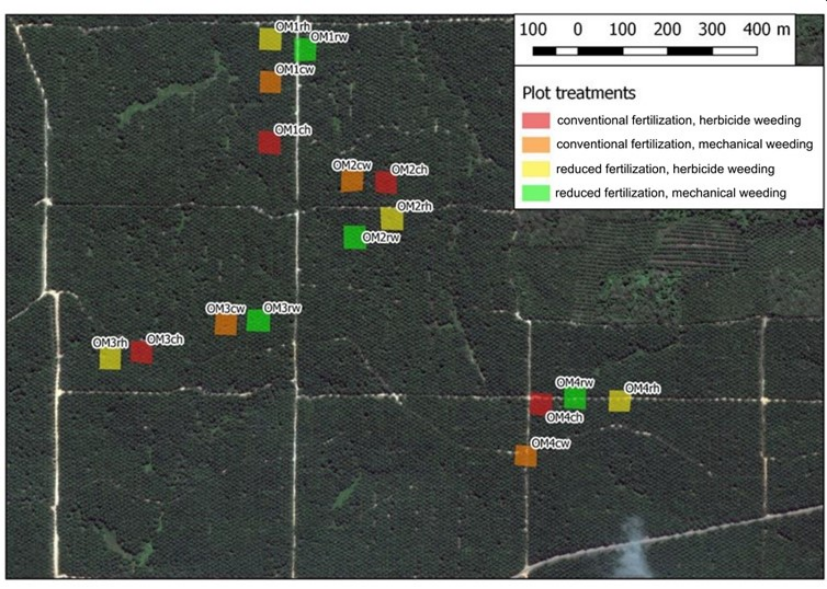Iop conference series earth and environmental science
Background
Recommendation
Agrochemicals Pollution is considered a serious threat not only for the environmental safety but at the same time these chemicals can have a deleterious effect on health as it can cause damage to the nervous system as well as cause higher chances of cancer. therefore, it would be right to say that the remediation approaches for this chemical pollution should be holistic in nature and should consider the environmental impact also (Hanum, Rauf, Fazrin and Habibi, 2016).
The reduction in the control of these agrochemicals is advisable in RSPO principles and they have also provided the criteria FY 2018 principle 7, however they do not provide and specific quantity listed in the criteria. fertilizers are known for high consumption. Therefore, it has become crucial to evaluate the level so that there can be a reduction in the overuse of such chemicals.
Using this material EFB as a mandatory compound which is one of the rich materials when it comes to nutrients and also help in the avoiding the fruit waste and is also associated with the insects and pest. This is directly related to principle 3 of RSPO principles which comes under the criteria 2018 “focuses on the optimization of the productivity, enhances the efficiency, resilience and also have a positive impact”. This can be taken to the waste management team and auditors who are in charge of compliance as well as the site conditions.
Using Mechanical weeding over the chemical Herbicides
Issues
Strategy Implications
PTPN 6
Figure 1
 Figure 2: Plot allocations using
conventional vs reduced fertilization
Figure 2: Plot allocations using
conventional vs reduced fertilization
Broad Lead Area Index is also the same as conventional fertilization.
High activity of above and belowground species of arthropods as well as the plants.
REA HOLDINGS East Kalimantan
Financial Implications
Risk analysis
The table below will provide the major risk associated with the proposal and how this risk can be mitigated so that the main aim could be achieved.
| Identified risk | Risk likelihood* | Impact of risk† | Strategy to manage risk |
|---|---|---|---|
| Response from the farmer is poor | 4 | 4 | This can be one of the major risks which are associated with the proposal that is generating a poor response from the farmers. However, this can be mitigated through engaging with the consultants with the research teams so that they can understand the importance of switching the low-intensity management practices and at the same, they can also share the stories so that the message for the importance of sustainability could be spread. |
| Weather condition can harm the soil response for the reduced treatment | 3 | 2 | Weather condition is out of control force which can have an adverse impact the soil response for the reduced treatment. However, this can be mitigated by conducting proper research and weighing down all the possibilities especially considering all the extreme conditions, so that strategies can be formulated by analyzing every situation. |
| Weed growth because of the organic fertilizers | 5 | 3 | In such a case one of the best ways to mitigate the issue is through treating the fertilizer with the Lime (Dolomite) and another way which could be adopted to mitigate this risk is through the use of mechanical weeding |
| A pandemic can harm the progress made in the project | 4 | 5 | In the unprecedented situation, the best way to mitigate this issue is to wight down all the possible impact of a pandemic on the project, so that actions and strategy can be formulated accordingly and at the same, it is important to follow the guidelines laid down by the government to curb the impact of a pandemic such as following social distancing protocols when going for the inspection of the visit or the audit. |
Legal and Compliance
Thai Agricultural Standards
According to the principle 7 criteria which is directly associated with the proposition as well the possible outcome related to the reduce pollution as well as minimum usage of the resources they are also highlighted below:
7.3 waste should be reused, recycled and reduced and should be disposed of an eco-friendly and socially accepted manner
This is directly linked to excessive fertilization control in order to avoid soil degradation
Quantitative KPI
Farmers sharing the inputs and promoting their success story.
References
Darras, K., Corre, M., Formaglio, G., Tjoa, A., Potapov, A., Brambach, F., Sibhatu, K., Grass, I., Rubiano, A., Buchori, D., Drescher, J., Fardiansah, R., Hölscher, D., Irawan, B., Kneib, T., Krashevska, V., Krause, A., Kreft, H., Li, K., Maraun, M., Polle, A., Ryadin, A., Rembold, K., Stiegler, C., Scheu, S., Tarigan, S., Valdés-Uribe, A., Yadi, S., Tscharntke, T. and Veldkamp, E., 2019. Reducing Fertilizer and Avoiding Herbicides in Oil Palm Plantations—Ecological and Economic Valuations. Frontiers in Forests and Global Change, 2.
Omont, H., 2005. Roundtable on Sustainable Palm Oil – RSPO. The second RSPO meeting in Jakarta in October 2004. Oléagineux, Corps gras, Lipides, 12(2), pp.125-128.
Sahide, M., Burns, S., Wibowo, A., Nurrochmat, D. and Giessen, L., 2015. Towards State Hegemony Over Agricultural Certification: From Voluntary Private to Mandatory State Regimes on Palm Oil in Indonesia. Jurnal Manajemen Hutan Tropika (Journal of Tropical Forest Management), 21(3), pp.162-171.





